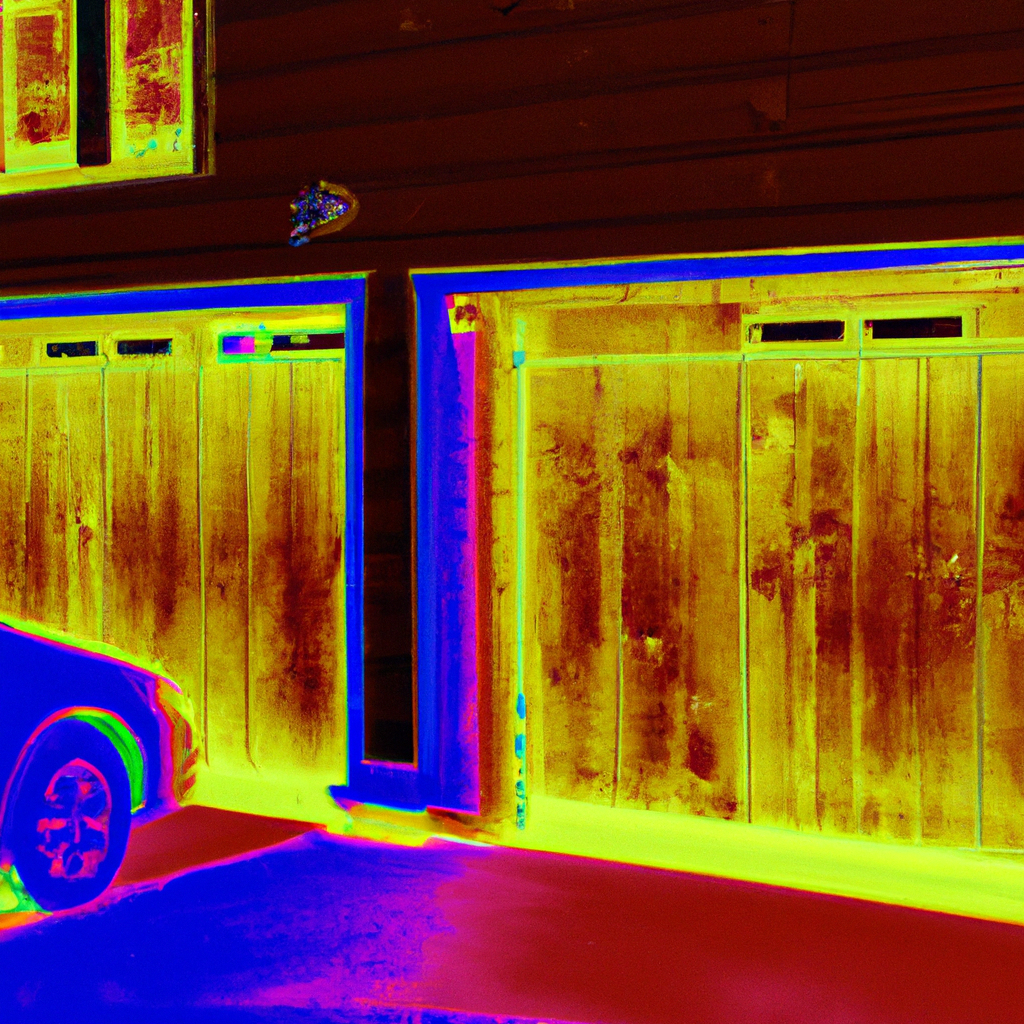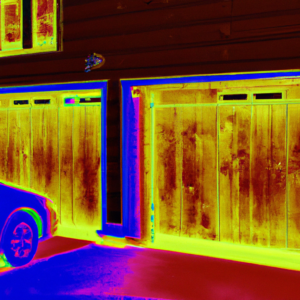Imagine stepping out of your car into a hot garage, or enduring the cold air seeping through your garage door. But what if there was a way to regulate the temperature, reduce noise, and save on energy costs? That’s where garage door insulation comes in. It’s a simple and effective solution to improve your garage’s comfort and efficiency. So, does garage door insulation work? Let’s dive in and find out.
Benefits of Garage Door Insulation
One major benefit of garage door insulation is that it helps to regulate the temperature inside your garage. Insulating your garage door can prevent heat from escaping during the winter months, keeping your garage warmer and more comfortable. Similarly, it can also help to keep the heat out during hot summer days, ensuring that your garage stays cooler. This temperature regulation not only enhances the overall comfort of your garage but can also have a positive impact on your energy bills. With proper insulation, you can reduce the amount of energy needed to heat or cool your garage, resulting in potential cost savings. Additionally, maintaining a consistent temperature inside your garage can help protect any belongings or equipment stored there from extreme temperature fluctuations, prolonging their lifespan.
Energy Efficiency and Cost Savings
When it comes to energy efficiency and cost savings, garage door insulation can make a significant impact. By effectively insulating your garage door, you can reduce energy consumption and lower your utility bills. With proper insulation, your garage will stay cooler in the summer and warmer in the winter, allowing your HVAC system to work more efficiently and saving you money in the long run.
Insulation Effectiveness in Savings
Insulating your garage door can significantly increase energy efficiency and save you money. Here’s how:
-
Reduced heat loss: Insulation helps to keep the cold air out during winter and the hot air out during summer. This means that your HVAC system doesn’t have to work as hard to maintain a comfortable temperature, leading to energy savings and lower utility bills.
-
Temperature regulation: Insulated garage doors help to stabilize the temperature inside your garage. This is particularly important if you use your garage for activities like woodworking or as a home gym. A well-insulated garage door can help maintain a comfortable environment for your hobbies and prevent extreme temperature fluctuations.
-
Long-term cost savings: While insulating your garage door may require an initial investment, the long-term cost savings can be significant. By reducing your energy consumption, you’ll see a decrease in your monthly utility bills, ultimately saving you money over time.
Insulating your garage door is a practical and cost-effective way to improve energy efficiency and save money.
Energy Consumption Reduction Impact
Reducing energy consumption through garage door insulation can have a significant impact on both energy efficiency and cost savings. By insulating your garage door, you can prevent heat transfer, keeping your garage cooler in the summer and warmer in the winter. This means that your HVAC system won’t have to work as hard to maintain the desired temperature, resulting in reduced energy consumption. Additionally, a properly insulated garage door can help to eliminate drafts, reducing the need for additional heating or cooling. The cost savings from lower energy bills can be substantial over time. To illustrate the potential savings, consider the following table:
| Energy Savings | Annual Cost Savings |
|---|---|
| 10% | $100 |
| 20% | $200 |
| 30% | $300 |
| 40% | $400 |
As you can see, even a modest energy reduction can result in significant cost savings. So, insulating your garage door can be a smart investment in both energy efficiency and your wallet.
Improved Temperature Regulation
Can garage door insulation effectively regulate the temperature in your garage? The answer is yes! Insulating your garage door can have a significant impact on temperature regulation, creating a more comfortable environment all year round. Here’s how it works:
-
Reduced Heat Transfer: Insulation acts as a barrier, preventing heat from escaping during the winter and entering during the summer. This helps maintain a stable temperature inside your garage, regardless of the weather outside.
-
Minimized Energy Loss: With improved temperature regulation, your HVAC system doesn’t need to work as hard to keep your garage comfortable. This can lead to energy savings and lower utility bills.
-
Protection from Extreme Temperatures: Insulation buffers the effects of extreme heat or cold, making your garage a more hospitable space for activities such as DIY projects, hobbies, or even just parking your car.
Investing in garage door insulation can make a noticeable difference in temperature regulation, ensuring a more pleasant and usable space for you and your family.
Noise Reduction and Soundproofing
Improve the soundproofing of your garage with garage door insulation. Insulating your garage door can significantly reduce the noise that enters or escapes from your garage. The insulation material acts as a barrier to absorb and dampen sound waves, preventing them from echoing and reverberating throughout the space. By adding insulation to your garage door, you can create a quieter environment, making it more enjoyable to work or relax in your garage. Whether you use your garage as a workshop, a home gym, or a place to practice your musical instruments, reducing the noise can enhance your overall experience. So, if you’re looking to minimize the noise disturbance, consider installing garage door insulation for improved soundproofing in your garage.
Enhanced Durability and Longevity
To further enhance the durability and longevity of your garage door, consider insulating it. Insulating your garage door not only helps with temperature control and noise reduction but also provides added protection and longevity for your door. Here are three ways in which insulation can enhance the durability and longevity of your garage door:
- Prevention of Moisture Damage: Insulation acts as a barrier against moisture, preventing it from seeping into the door and causing damage such as rust or rot.
- Protection Against Extreme Temperatures: Insulation helps to regulate the temperature inside your garage, reducing the stress on your door caused by extreme heat or cold.
- Reduction of Wear and Tear: Insulation can help to minimize the expansion and contraction of your garage door due to temperature changes, reducing the strain on the door and extending its lifespan.
Simple Installation and Maintenance
Insulating your garage door offers a straightforward installation and low-maintenance solution for enhancing its efficiency and longevity. When it comes to installation, the process is relatively simple and can be done by homeowners themselves. The insulation material, such as foam panels or reflective foil, can be easily attached to the garage door using adhesive or fasteners. There is no need for complex tools or professional assistance. Once installed, maintaining the insulation is hassle-free. Regular cleaning with a mild detergent and water is usually sufficient to keep it in good condition. Additionally, periodic inspection for any signs of wear or damage is recommended. By following these simple steps, you can ensure that your garage door insulation continues to work effectively for years to come.




